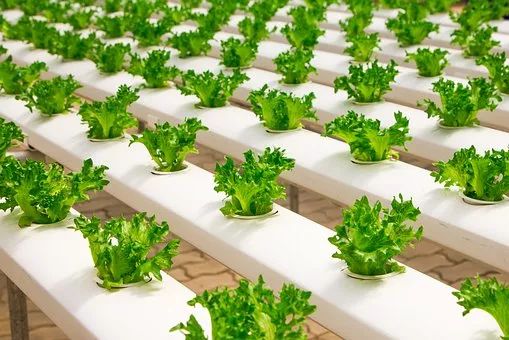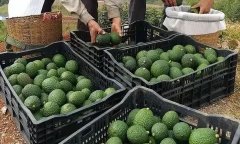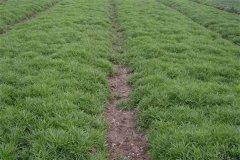The new EU regulations on organic product certification reject "hydroponics" and "elimination"
On June 14, 2018, the European Commission issued (EU) 2018 No 848, a new organic product and organic product labelling regulation, which will be implemented on January 1, 2021, when (European Commission) 834max 2007 will be repealed.
On June 14, 2018, the European Commission issued (EU) 2018 No 848, a new organic product and organic product labelling regulation, which will be implemented on January 1, 2021, when (European Commission) 834max 2007 will be repealed.
The main contents of this regulation include: general principles of organic production; specific principles applicable to agricultural activities and aquaculture; specific principles applicable to organic food processing; prohibition of the use of genetically modified organisms; processed food production principles; wine production principles; yeast production principles for food or feed; product collection, packaging, transportation and storage; mandatory labeling information; EU organic production logo Relevant regulations on the export of organic products; import of organic and organic products; information of competent authorities, controlling authorities and controlling agencies; derogation, authorization and reporting, etc.

Refuse "hydroponics"
The new law requires organic crops (except those that grow naturally in water) to grow in the soil. Hydroponic production (Hydroponic production) is an unnatural growth method that takes root only in nutrient solution or inert medium with nutrient solution added.
However, the following organic products can be produced by hydroponics:
(1) production of germinated seeds
(2) production of ornamental plants and herbs sold to consumers in the form of potted plants
(3) in order to promote the organic production of plants in the early growth stage, seedlings or transplants should also be allowed to be planted in containers.
Avoid pollution of chemical synthetic inputs
The new regulations introduce preventive measures (preventive and precautionary measures) to control the pollution of organic products caused by pesticides or fertilizers, and the new regulations have more uniform requirements for the pollution of pesticides or synthetic fertilizers.
The new regulations obligate farmers and other operators in the food supply chain to take a series of new measures to avoid pollution; if unauthorized pesticides or fertilizers are suspected, the final product should not carry an organic label until further investigation; if the pollution is intentional or if the operator fails to take precautions, the product will lose its organic status.
Strengthen the official control mechanism
The new regulations establish a new risk-based inspection mechanism, which is applicable to the entire organic supply chain. The inspection mechanism requires the competent authorities of EU member States to inspect enterprises once a year, and if a manufacturing enterprise / retailer passes the inspection for three consecutive years, the inspection will be carried out every other year.
Eliminate "equivalent certification"
In order to prevent fraud in EU organic products, the EU will take more stringent measures to prevent this measure. The new regulation stipulates that organic products imported from third countries must comply with EU organic product standards and indicates that third-country "equivalent Certification (Equivalence)" products approved by (EC) No 834 will be phased out. Of course, this phase-out measure will have a five-year transition period and will end on December 31, 2025.
At present, the current Organic products Regulation (EC) No 834 provides that the certification of EU organic products includes "equivalent certification" and "full certification". The standard of "equivalent certification" will be implemented with reference to the standards of the Codex Alimentarius (CAC/GL 32-1999); "fully certified" products mean 100 per cent compliance with EU laws and regulations on organic food. At the same time, the operation of "full certification" is exactly the same as that of EU organic product certification.
- Prev

Meng Lianzhong has joined hands to build the hometown of Asian avocado this year.
Menglian, located in Pu'er City, Yunnan Province, China, is an autonomous county of Dai, WA, Lahu and other ethnic minorities. This obscure place on the southwestern corner of China's border with Myanmar has been increasingly associated with avocados.
- Next

Key points of organic cultivation of green manure ryegrass
Ryegrass (Italian ryegrass) is a perennial herbage with a general growth period of 1 to 2 years. The fibrous root is well developed, the base is tufted, and the plant height is 90 to 130 cm. The leaves are long and wide, dark green and glossy, curved and drooping. Ryegrass likes warm and humid climate, fat
Related
- Fuxing push coffee new agricultural production and marketing class: lack of small-scale processing plants
- Jujube rice field leisure farm deep ploughing Yilan for five years to create a space for organic food and play
- Nongyu Farm-A trial of organic papaya for brave women with advanced technology
- Four points for attention in the prevention and control of diseases and insect pests of edible fungi
- How to add nutrient solution to Edible Fungi
- Is there any good way to control edible fungus mites?
- Open Inoculation Technology of Edible Fungi
- Is there any clever way to use fertilizer for edible fungus in winter?
- What agents are used to kill the pathogens of edible fungi in the mushroom shed?
- Rapid drying of Edible Fungi

